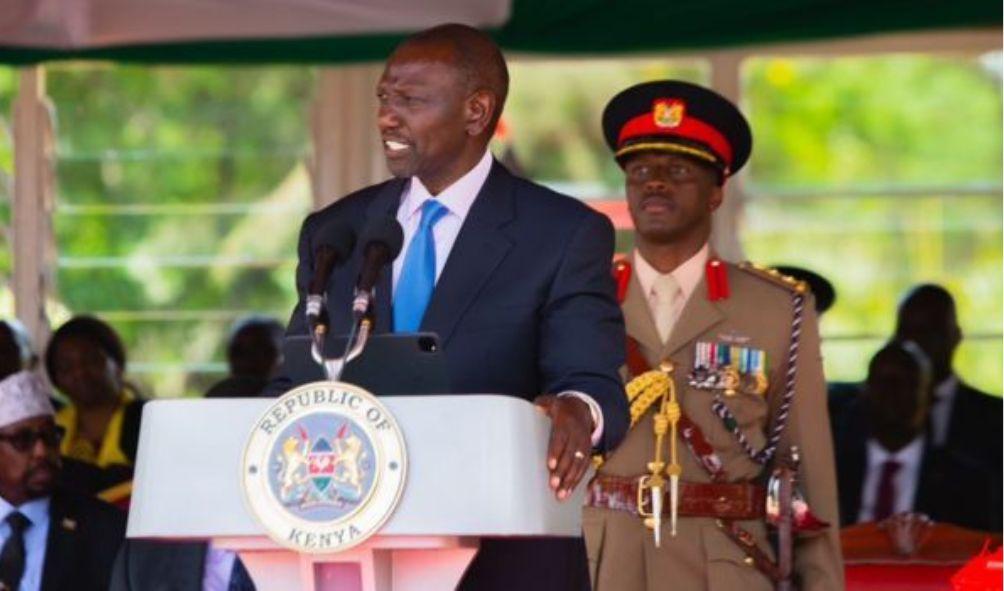NHIF Reforms: Ruto Sets Stricter Rules for Medical Treatment Abroad
By the reforms that are currently being championed by President William Ruto, Kenyans who wish to receive medical treatment outside of the country are required to satisfy five stringent prerequisites before their treatment can be covered by the National Health Insurance Fund (NHIF).
Beneficiaries are required to have paid off all of their contributions and arrears before being granted permission to travel outside of the country, as outlined in the proposed NHIF Regulations 2023. This is to ensure a more streamlined and efficient process for providing health coverage. They are also required to provide the national insurer with a letter of referral from their primary care physician.
The nature of the disease, the length of time the doctor had been treating the patient, the treatment or procedure for which the patient is being referred, and a variety of other specifics are among the information that referring physicians are required to provide.
The physician is also required to indicate whether or not the treatment can be obtained in Kenya and provide an explanation for why it is being sought outside of the country.
“If the answer is yes, please explain why the patient must undergo the treatment, procedure, or investigation outside of the country to receive the best possible prognosis for their condition.” read through the form partially.
Patients will also be required to acquire a letter of no objection from the Director General for Health, which is a position that is currently being filled in an acting capacity by Patrick Amoth.
“The Board shall consider the request for authorization of treatment outside of Kenya to verify that the health service requested for authorization is unavailable in Kenya. “
ALSO READ: Parliamentary Committee Launches Probe into NHIF Fraud and Tender Irregularities
By the regulations, “where the Board is satisfied that the health care service is not available for the beneficiary, the Board shall authorize the treatment of the beneficiary outside of Kenya,”
When seeking specialized treatment for conditions such as cancer and heart disease, the vast majority of Kenyans travel to other countries.
India, Israel, and the United Kingdom are just a few of the places that Kenyans travel to to receive medical treatment.
Importantly, the proposals state that Kenyans who suffer from chronic diseases will be eligible for unlimited coverage even if they have already used up their allotment. On the other hand, they will be required to finish all of their contributions and areas.
Contributions
It has been suggested that Kenyans who are either employed or self-employed should contribute 2.75 percent of their monthly salaries or income.
According to the most recent proposals put forth by the government, several jobless Kenyans will be required to pay Ksh1,000 each month.
According to the proposal made by the NHIF, the amount of money that will be paid out by the national government to poor and vulnerable people will be 13,300 Kenyan Shillings.
Position of the Government
Ruto has been a strong supporter of reforms and has emphasized their benefits to the many Kenyans who are having trouble making ends meet. At the same time, he has been critical of the existing payment model, which he argued was unfair and unbalanced.
ALSO READ: NHIF Acting CEO: External Benchmarking Preceded Proposal to Raise Contributions to 2.75%
“It does not make any kind of sense that the president of the country pays Ksh1,700 every month to have NHIF while a common citizen pays Ksh600. When asked about it at the time, Deputy President Ruto stated, “My salary is Ksh1 million and the bodaboda earns Ksh700.”
Nevertheless, despite Ruto’s confidence, several professionals in the field of medicine have voiced their concerns regarding the proposals.
Expert Opinion
Edward Owino, a health financing expert with ten years of experience, was a guest on a previous episode of GossipA2Z’s interview series and shared his opinion that the government should prioritize voluntary contributions and first renovate public hospitals.
Owino explained that several workers had other private health insurance schemes and rarely used NHIF because of the disparity in the services that were provided by the two organizations.
Why would the government make you pay more money if it didn’t have to? “You find that someone will part ways with Ksh25,000 annually, yet they will not even use NHIF,” Owino explained. “You find that someone will part ways with Ksh25,000 annually.”
NHIF Reforms: Ruto Sets Stricter Rules for Medical Treatment Abroad
HEY READER. PLEASE SUPPORT THIS SITE BY CLICKING ADS. DON’T FORGET TO HIT THE NOTIFICATION BELL FOR MORE UPDATES AROUND THE GLOBE.
